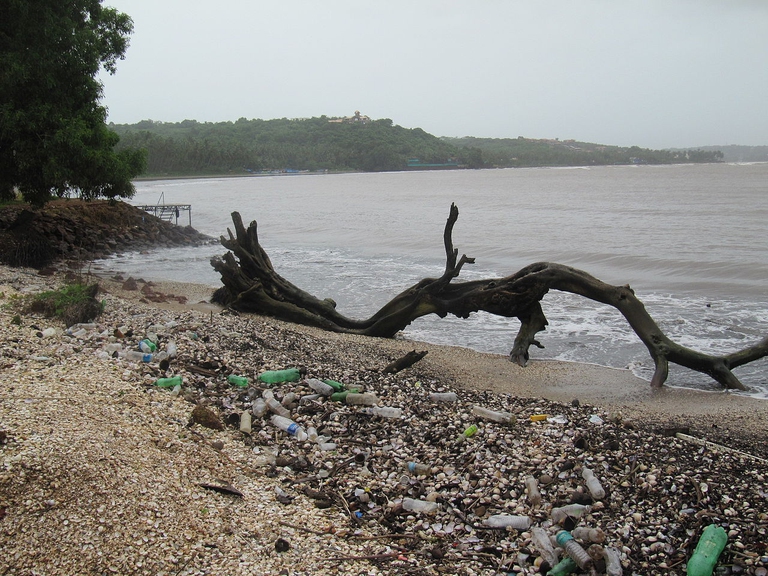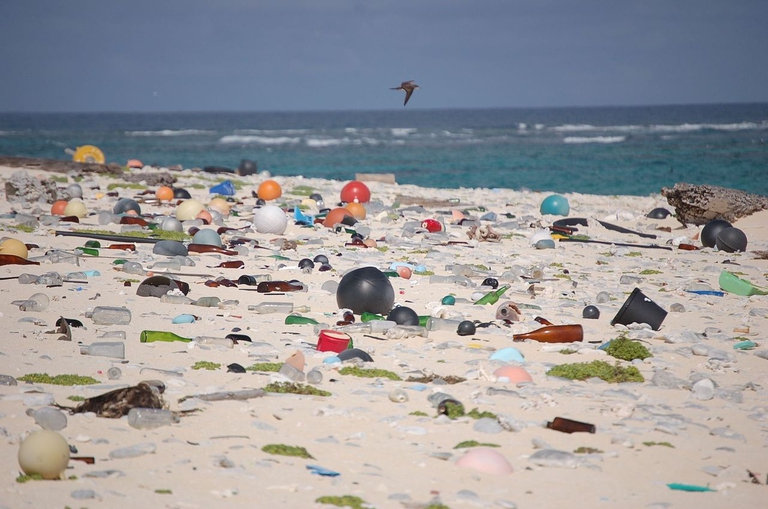
A report by Ember explains that in 2025 electricity generation from renewables (solar, wind and hydropower) surpassed that from fossil fuel sources.
The latest study by the Ellen MacArthur Foundation reveals that there will be more plastic than fish in the sea by 2050.
Imagine oceans populated by fish swimming among plastic pieces of any origin and dimension. Imagine oceans where you’re more likely to find a plastic bottle rather than an anchovy. A horror movie? No, the ugly truth that, unfortunately, the world is going to face by 2050.
That’s what is shown in a report carried out by the Ellen McArthur Foundation, in collaboration with McKinsey Centre for Business and Environment, and presented at the 2016 World Economic Forum at Davos. According to the analysis, the ratio of plastic to fish in the oceans – currently is one to five – will be one to three by 2025. By 2050, fish amount in oceans will be thus fewer than plastic debris.
This will represent an environment catastrophe: fish will ingest plastic debris, with deadly consequences for the food chain. Currently, according to a study published by Proceedings of the National Academy of Sciences, up to 90% of seabirds in the world have plastic in their guts.
According to the report presented at Davos, the only way to avoid making oceans uninhabitable is “triggering a revolution in the plastics industrial ecosystem”, and looking for alternatives to oil as raw material. If this trend continues, plastic material producers will consume 20% of global oil production by 2050.
Switching to sustainable alternatives and enhancing reutilisation could allow huge savings in financial terms: “The current plastics economy has drawbacks that are becoming more apparent by the day. After a short first-use cycle, 95% of plastic packaging material value, or $80–120 billion annually, is lost to the economy”.
However, change can be driven also by our daily behaviours. A simple act, like going shopping with a reusable bag can significantly help face the problem. It’s no coincidence that many countries are working to limit the use of shopping bags.
An example is France, which will ban the distribution of plastic bags in all supermarkets as of March, as well it will ban the sale of plastic cutlery starting from 2020. Why don’t other European countries follow close behind?
Siamo anche su WhatsApp. Segui il canale ufficiale LifeGate per restare aggiornata, aggiornato sulle ultime notizie e sulle nostre attività.
![]()
Quest'opera è distribuita con Licenza Creative Commons Attribuzione - Non commerciale - Non opere derivate 4.0 Internazionale.
A report by Ember explains that in 2025 electricity generation from renewables (solar, wind and hydropower) surpassed that from fossil fuel sources.
US-based craft beer company Saltwater Brewery, in collaboration with advertising agency We Believers, has launched a beer packaging that is 100 per cent edible. The problem of ocean plastic The idea stems from the need to protect oceans and marine wildlife from the huge amount of plastic humans dump on the world’s beaches and seas every year. Plastic represents
According to a new study, 90% of all seabirds have plastic residuals in their guts.
The Tyler Prize, considered the “Nobel Prize for the Environment,” has been awarded to Toby Kiers, an American biologist working in Amsterdam.
Belgium is one of the countries most exposed to climate change. Dune–dikes are a solution to curb sea-level rise.
Between October 2024 and September 2025, the average temperature in the Arctic was 1.6 degrees Celsius higher than during the 1991–2020 period.
Undeclared conflicts of interest, paid authors, lack of transparency: one of the most cited studies on glyphosate, published in 2000, has been retracted.
The Copernicus service has released data for the first eleven months of 2025: global warming is set to come close to last year’s record.
The European Council and Parliament have reached an agreement on the European Commission’s proposal to deregulate new GMOs. But farming, organic agriculture, and environmental organizations are calling for it to be stopped.









